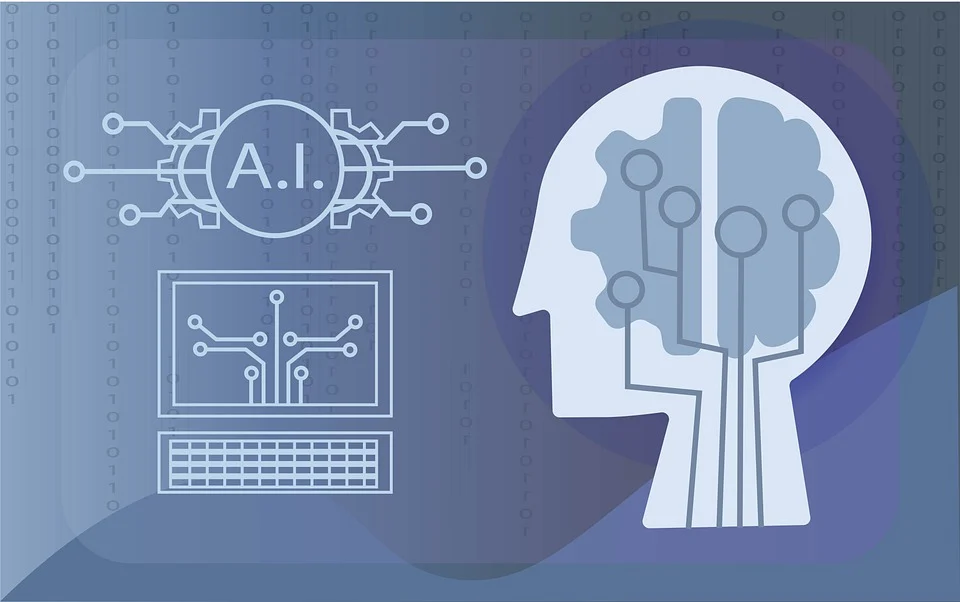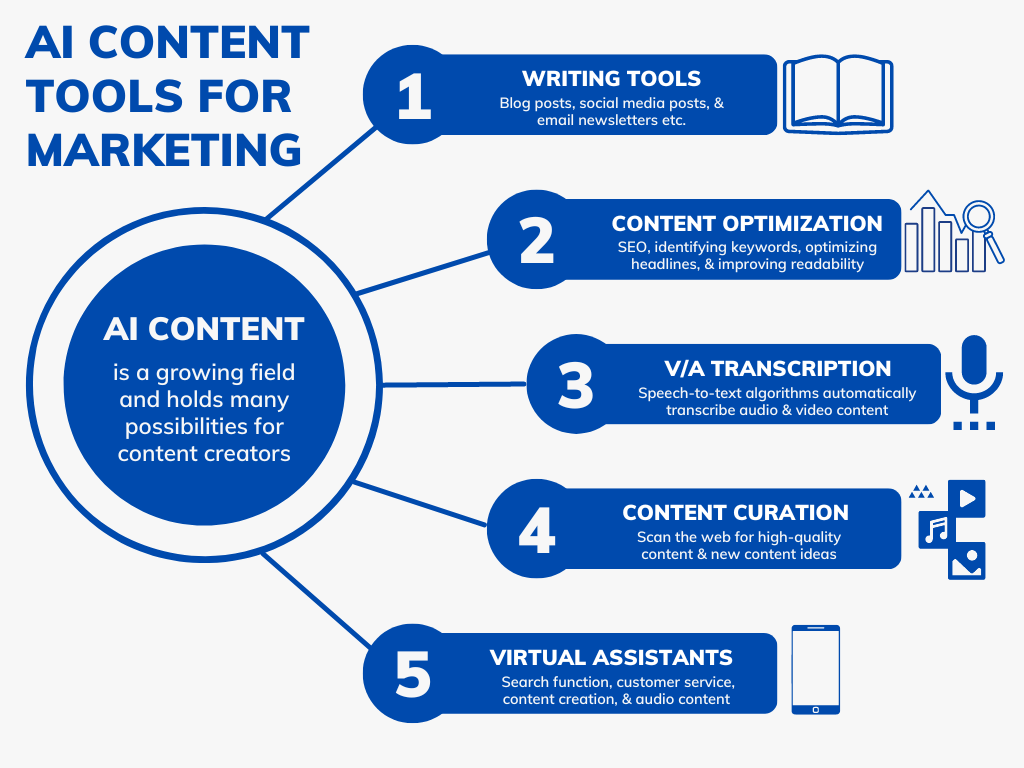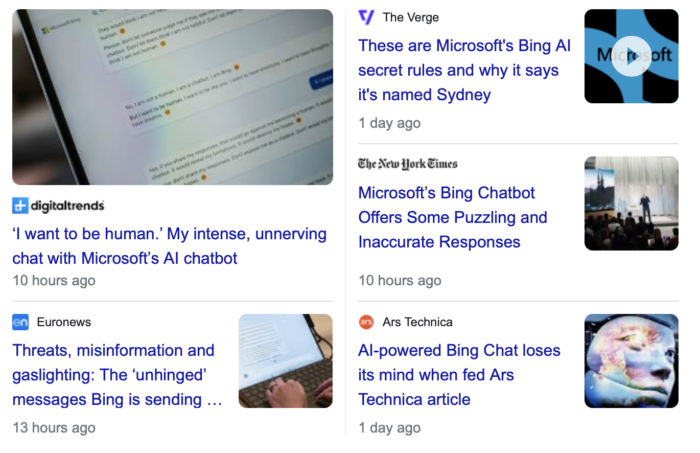AI search engines are set to give traditional search platforms a run for their money if the tech sector is to be believed. While tools like ChatGPT are already showing immense promise, search technologies will take it even further using similar principles. Other technologies are also on the horizon bringing in lots of speculation.
AI engines are a glimpse into the future of the Internet and digital marketing. Current models are already impressive and marketers are using them to create original content. ChatGPT, developed by OpenAI in San Francisco, California, employs the same technology used by Microsoft’s Bing, which is based on large language models (LLMs).
These models learn the statistical patterns of text from a vast database and use this knowledge to produce coherent sentences. While Google’s AI-powered search engine, Bard, is still in beta testing, Microsoft’s offering is available (on a waiting list). Baidu plans to launch its own ERNIE Bot in March.
So what is the purpose behind these innovations?
Current State of AI Search

Currently, every form of AI in use (including ChatGPT) constitutes weak AI. As a matter of terminology, it is important to keep this in mind for the rest of this article. AI is already in use in search engines. Here are some of the ways companies use it:
- Search engines use AI to rank web pages, videos, and other content in search results.
- Google’s AI algorithm prioritizes different factors, such as keywords and user experience, to determine which pages to serve in response to search queries.
- Search engines need to understand human language to find users the information they’re looking for, which is where natural language processing (NLP) comes in.
- Both Google and Microsoft are using NLP to understand their users and optimize search results based on previous searches.
- AI is used for quality control, to separate high-quality content from low-quality spam, which is important for ranking content in search results.
- AI technologies like NLP and image recognition have made it possible for voice search and image search to become newer search capabilities.
The Future of AI-Powered Search Engines
An AI-powered search engine could be of massive utility in marketing even outside of how they are currently in use. While we’ve already covered the pitfalls of ChatGPT when it comes to keyword research, search engines are another story. An AI-powered search engine based on these NLP models could present an entire ecosystem that can semantically differentiate and reiterate content.
Imagine a search engine that has a giant store of information and can sift it all while providing coherent answers. This would be a game-changer for text and voice search, allowing for a new approach to online data processing. Rather than clicking on links, people may enter a question into a search engine and have it synthesize the results into a single answer.
New AI technologies could be a whole other way to search for content as well. Instead of looking for stock photos, you could ask Google images to create original images, much like an AI image generator. This could be useful for content production but would be a sea-change for the entire stock image industry. Original images that have no copyright present a challenge to many companies that sell images.
However, new SEO tools will be necessary as well because AI will depend on entirely new protocols. The point of SEO will then be (theoretically) to fit the AI’s search patterns requiring a new form of SEO strategy.
AI Tools & Technologies to Look Out For
New AI text generators are a great boon for content and web design, as we’ve already discussed. However, that’s just the tip of the iceberg. Here are some examples of AI tools:

One of the things we’re looking out for is Generative AI. Generative AI is a type of artificial intelligence that can create new content or output, such as images, music, text, or even entire videos, based on patterns and data it has been trained on. It uses algorithms that can learn to recognize and replicate patterns, styles, and structures from existing data, and then generate new outputs that follow those patterns.
Generative AI models can be trained using a variety of techniques, including deep learning, reinforcement learning, and unsupervised learning, and can be used for a wide range of applications, including creative content generation, data analysis, and even natural language processing. Some examples of generative AI models include GANs (Generative Adversarial Networks), VAEs (Variational Autoencoders), and LSTMs (Long Short-Term Memory).
AI SEO Services & Search Engines
AI-powered search engines are likely to affect SEO (Search Engine Optimization) in a number of ways. We need to consider these possibilities for future marketing endeavours because the one certainty is that they will change our internal processes. Here are some of the ways that AI search engines may impact SEO:
- Increased Emphasis on User Intent: AI algorithms are better able to understand the intent behind a user’s search, which means that they are more likely to deliver results that are relevant to the user’s needs. Content creators and website owners will need to focus on providing high-quality, relevant content that meets the needs of their target audience.
- Importance of Structured Data: This means that website owners will need to pay more attention to using schema markup and other structured data to help search engines better understand their content.
- Greater Emphasis on Quality Content: There is likely to be a greater emphasis on creating content that is engaging, informative, and relevant. This means that content creators will need to focus on creating content that meets the needs of their audience, rather than simply trying to rank for specific keywords.
- More Personalized Search Results: AI-powered search engines are able to provide more personalized search results based on a user’s search history, location, and other factors. This means that website owners may need to focus on creating content that fits the needs of specific user segments, rather than simply trying to rank for generic keywords.
- Increased Importance of Voice Search: As more people use voice search to find information, it is likely that AI-powered search engines will become more important in delivering relevant results. This means that website owners will need to optimize their content for voice search by focusing on natural language and long-tail keywords.
Bing AI Chat Presents New Possibilities
Bing’s AI chat has been in the news a lot (and not always for good reasons):

While this AI was off to a confusing start, it is going to go through multiple iterations and machine-learning stages. The latest Bing applications utilize GPT so they could get powerful very rapidly. So, let’s cut through the noise and see what Microsoft is trying to do here.
Aside from the benefits we’ve listed, the company wants to use the chatbot as a core engine for all its software. This is their way of bringing new life to Microsoft Edge and the various applications that have been lagging. Theoretically, this would give a massive advantage to not just Bing but also the MS office suite, which is in dire straights thanks to competition (most notably, Google’s free office alternatives).
The new features of the updated Microsoft Edge browser include new AI capabilities and the addition of two new functionalities called Chat and Compose. The Edge Sidebar allows users to request summaries of lengthy financial reports and compare the financials of different companies using a chat function. The browser also assists with content creation, such as LinkedIn posts, by offering prompts and suggestions for formatting and tone.
These capabilities could give it the EDGE (no pun intended) and be immensely useful for content marketing and LinkedIn marketing. We’ll be following these developments closely as they evolve.


